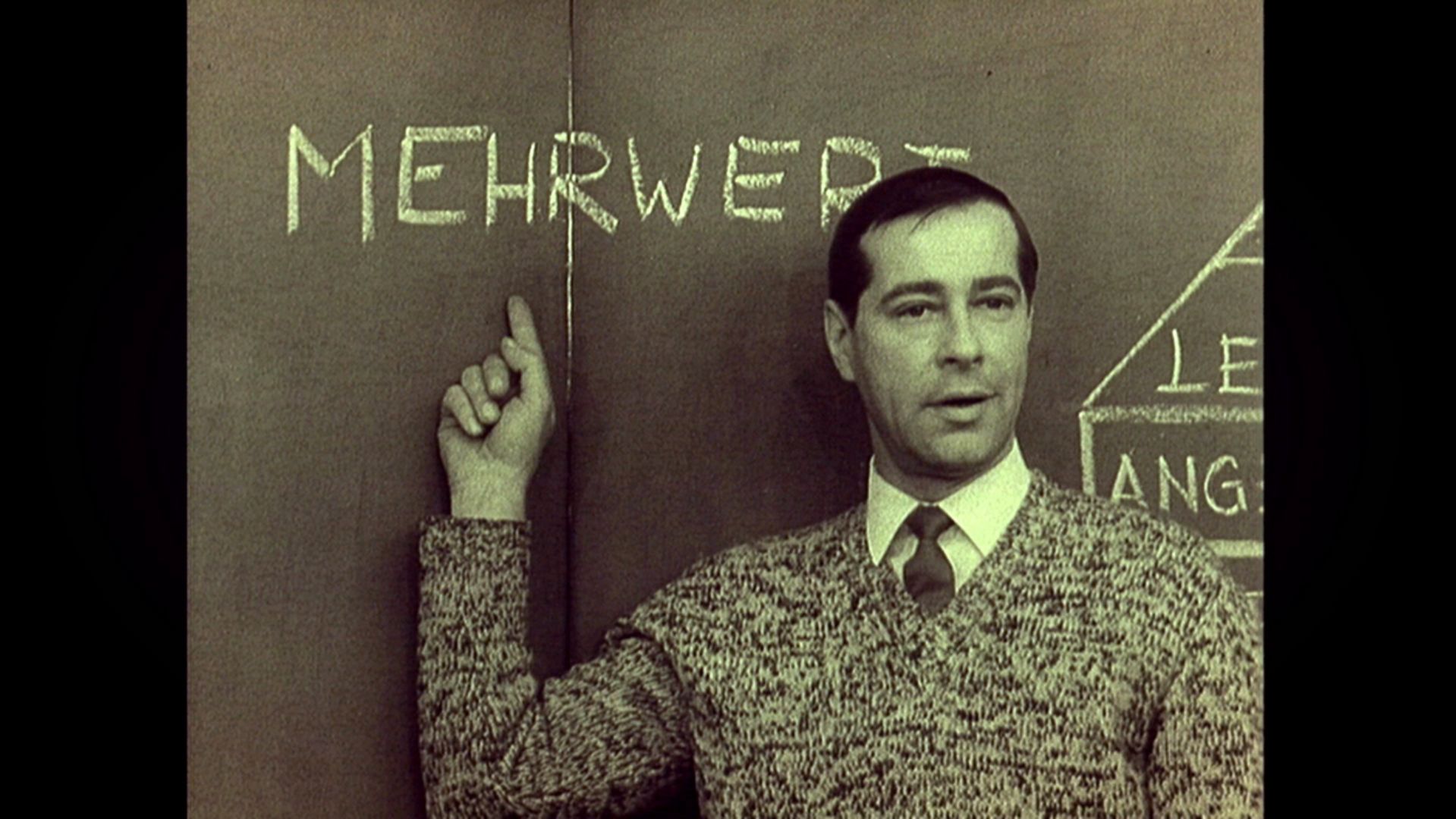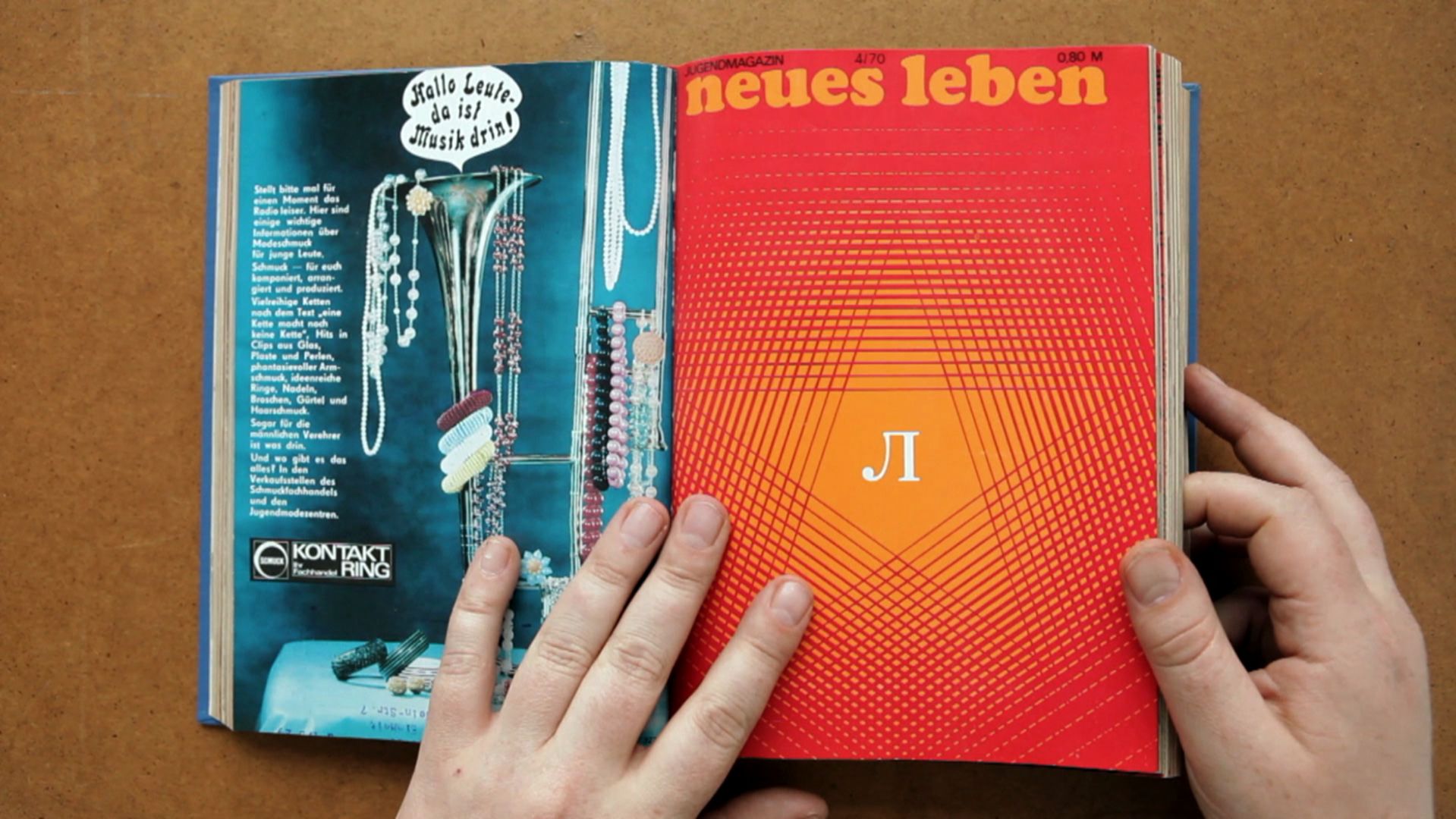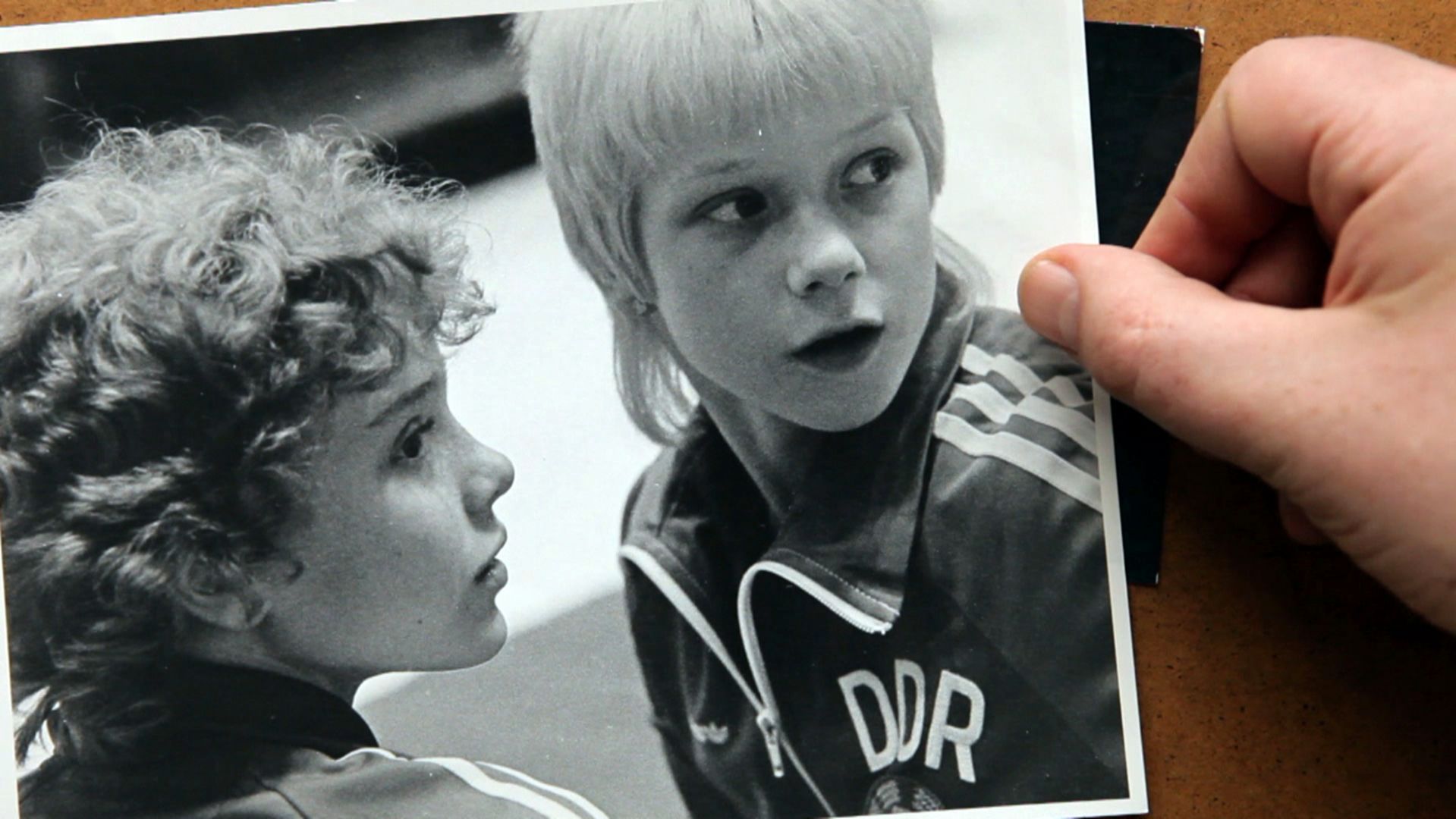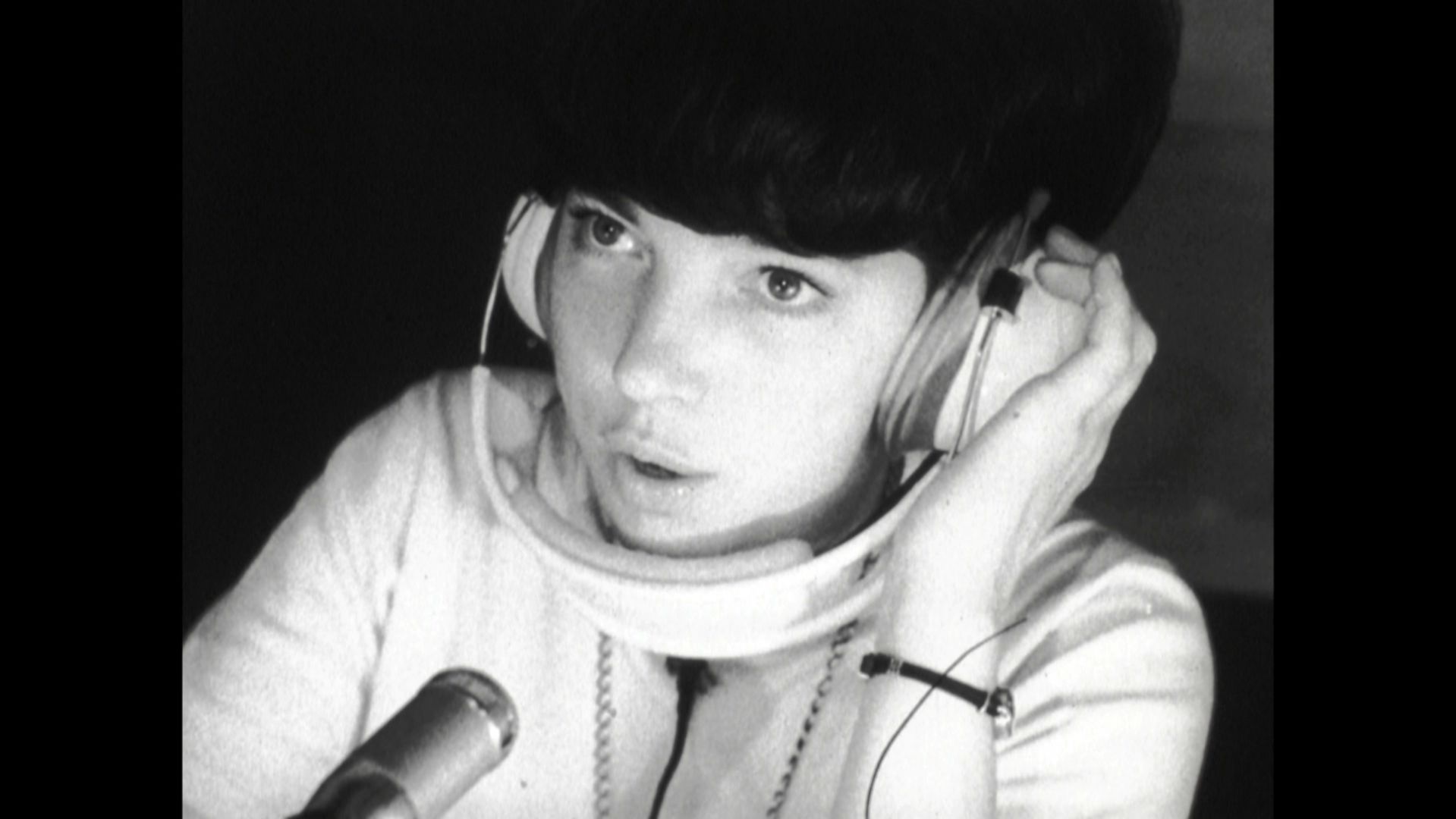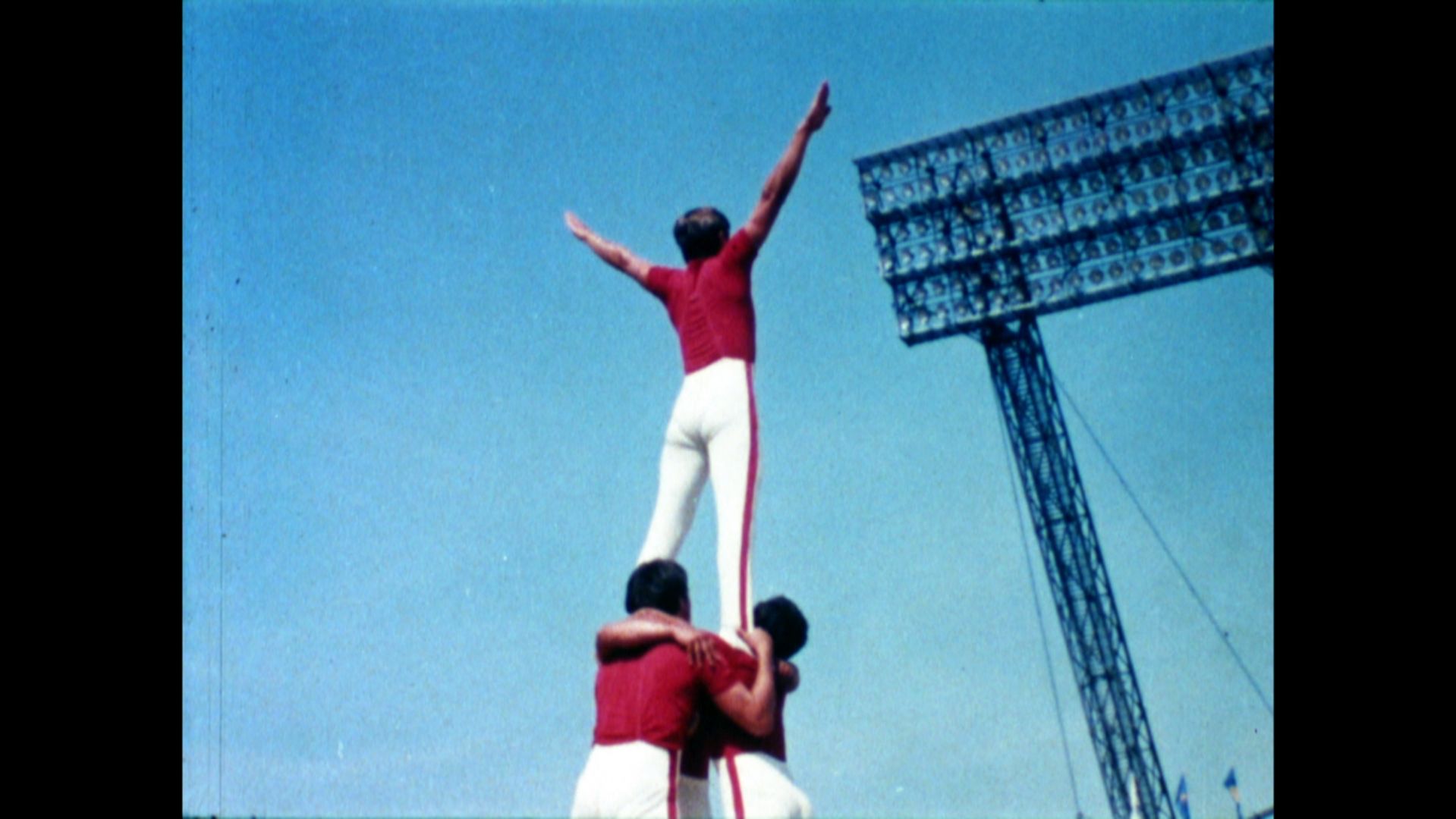Phil COLLINS
marxism today (prologue)
Phil COLLINS
marxism today (prologue), 2010
(still)
HD video, colour and black & white, sound; 35’
Courtesy of the artist and Tanya Bonakdar Gallery, New York / LA
Photos: Courtesy of Shady Lane Productions, Berlin, © Phil Collins
We don’t like to think of the regime change of 1989– 90 as a traumatic historical event, but rather as a kind of euphoric triumph. To this day, a nuanced assessment of the aftermath of these events, whether we are talking about the fate of individuals or social groups, is almost considered a violation of taboos. In his videos, Phil Collins often works with representatives of various social groups (Turkish and British reality TV stars, Mexican telenovela stars, Kosovar refugees, Palestinian disco dancers, a symphony orchestra, prisoners, etc.). In the case of marxism today (prologue), he interviewed teachers of MarxismLeninism from the former GDR and supplemented these with relevant excerpts from archive films. The identification of the interviewees’ occupation as a key aspect provides a particular backdrop to the theme of regime change, i.e. the transition from socialism to capitalism. The privatisations that followed in ‘89 left hundreds of thousands of people unemployed. For these people, coveted capitalism was a huge disappointment, because their lives were not improved, but in fact significantly worsened. In the case of teachers, far fewer were affected by the transition, but the irony of fate is that regarding school subjects considered ”ideological”, it was the former political economy teachers who were facing unemployment or a change of profession. As the first interviewee tells us, not only did the system change almost overnight, but the country where she was born and where she had lived until then (not to mention the traumatic events in her private life) disappeared as well. Collins reveals these sources of trauma in a collaborative process with his interviewees, making the potential resources clear to the viewer. The work also serves as a catalyst for further processing traumas in our blind spots.
TIMÁR Katalin

